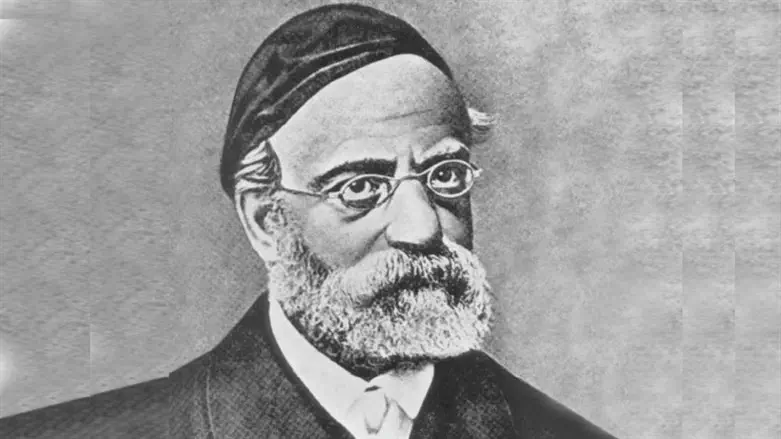
"And may G-d...grant you sympathy (rachamim) in the presence of the man that he may let your other brother and Binyamin go" (Bereishis 43:14).
What is rachamim and how does it differ from rachmanus?
According to Rav Samson Raphael Hirsch, rachmanus is pity. We see a beggar on the street and feel bad for him. So we give him a dollar. We have rachmanus. Rachamim, Rav Hirsch argues, is a far loftier emotion. "The word is derived from rechem by which is designated the most self-sacrificing energy of one being for the formation of another being to come into existence and be completed; rechem, the womb, is the hearth of the deepest devotion."
Rav Hirsch continues:
"And afterwards, too, when the new being is there, the rechem begets not only sympathy with its crying but even more intimate joy with its smiling. A smile from the baby on the lap makes up for years of worry and sleepless nights. From this rechem is rachamim formed and not only suffers when the other suffers but knows no rest until he sees him happy."
Rav Hirsch wisely notes that "very few people...do not feel sympathy with the suffering of their fellow men." Yet, "not everybody, not by a long shot...feels sympathy with a poor man today and feels joy to a similar degree if he draws the first prize in the lottery overnight, and tomorrow he sees him pass him in the street riding with his family in an elegant carriage."
May we all therefore bear in our hearts, not just rachmanus for our fellow human beings, but rachamim. For which "is rarer, which ennobles man more -- to be moved to pity at others' sorrow or to be moved to joy at their happiness?"
Rav Samson Raphael Hirsch (1808-1888) – head of the Jewish community in Frankfurt, Germany for over 35 years – was a prolific writer whose ideas, passion, and brilliance helped save German Jewry from the onslaught of modernity.
Elliot Resnick, PhD, is the host of “The Elliot Resnick Show” and the editor of an upcoming work on etymological explanations in Rav Samson Raphael Hirsch’s commentary on Chumash
